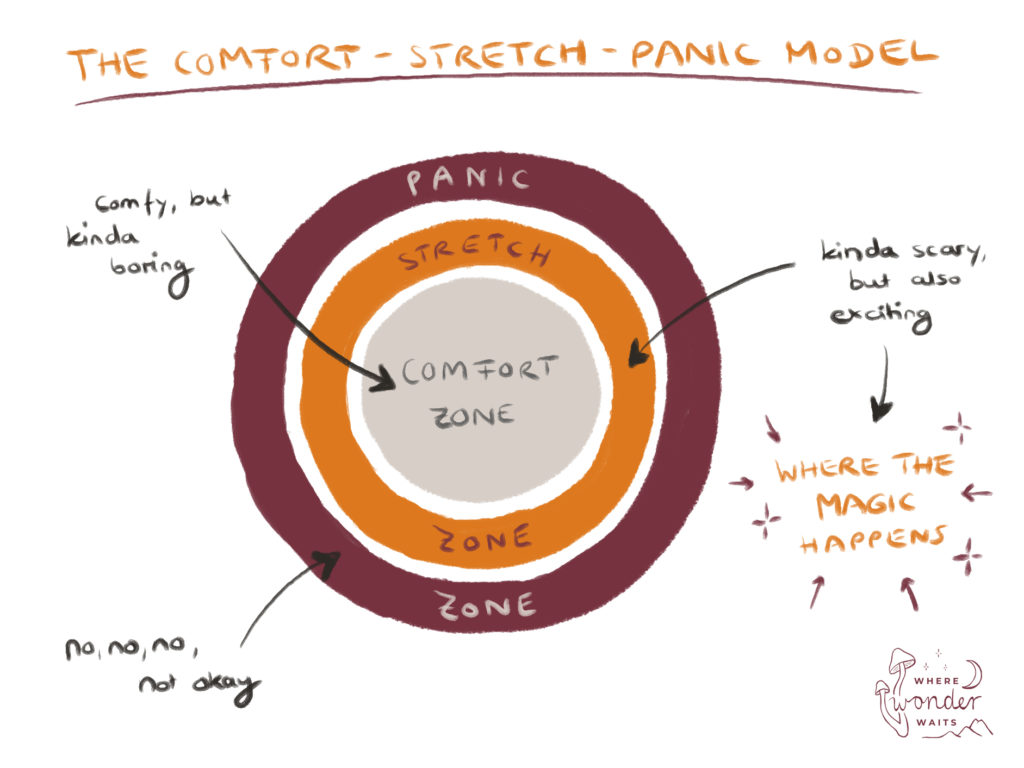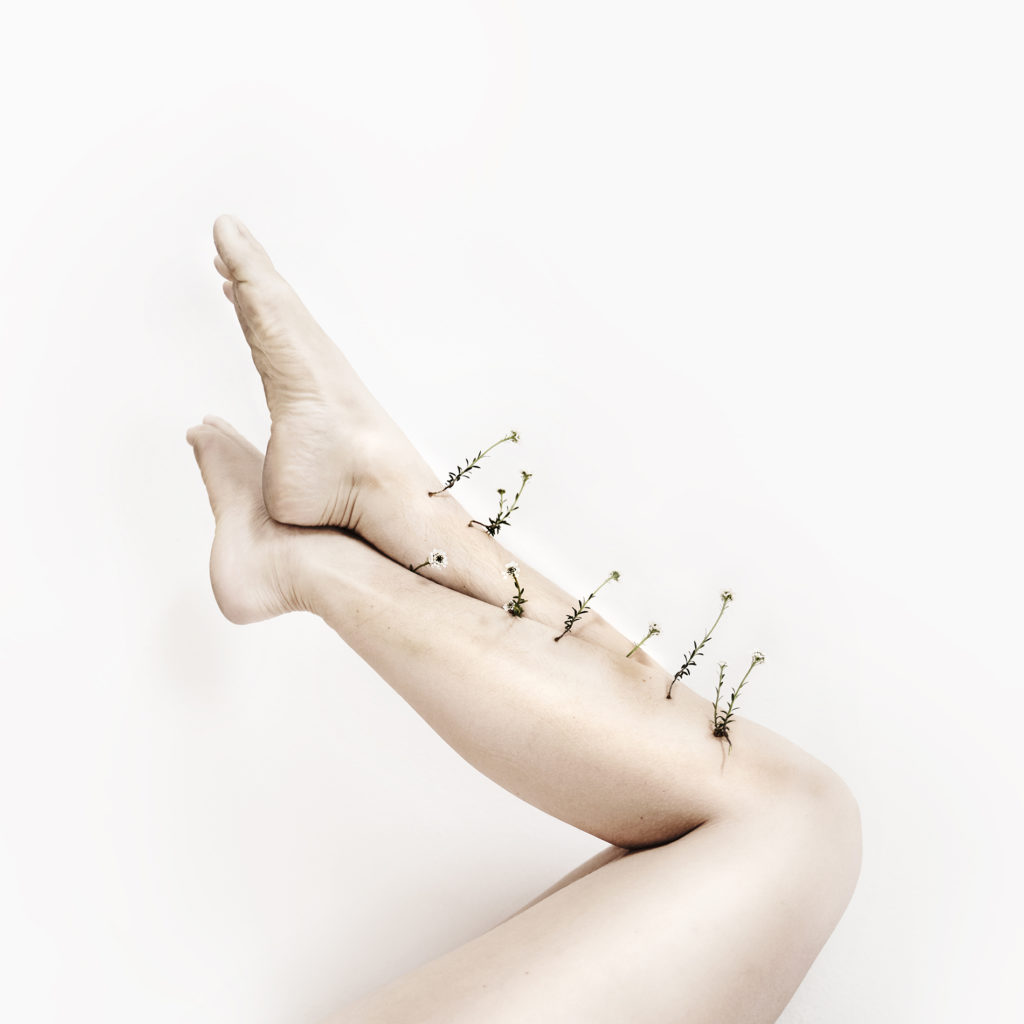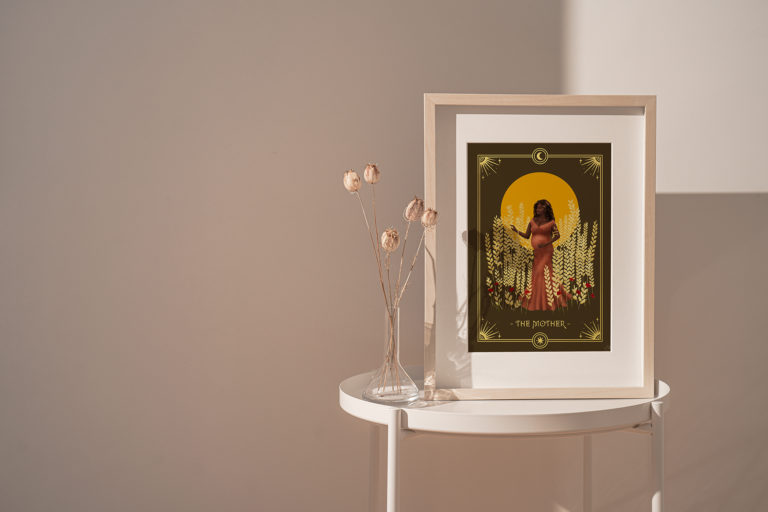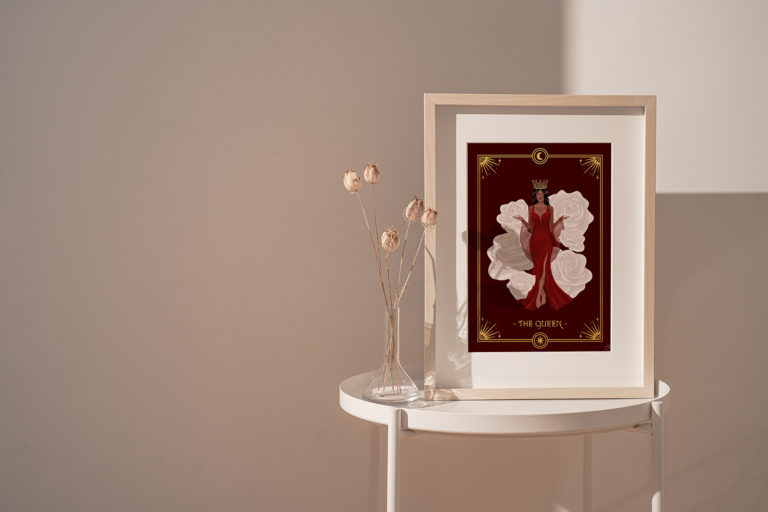
Why Getting Comfortable With Being Uncomfortable Is So Powerful
Generally, humans tend to avoid being uncomfortable at all costs. And I get it! Discomfort just doesn’t feel good. And we want to feel GOOD.
But if you heard the phrase ‘get comfortable with being uncomfortable’ before, you might suspect there are some secret benefits to discomfort. And there are.
Discomfort holds so much value. Honestly, discomfort has been one of my biggest teachers. And when I finally stopped avoiding discomfort, my life changed quite drastically.
You know, maybe life is not about taking the easy road. I now rather believe it is about building the strength to deal with whatever hardship life throws at you.
That is what allows you to walk through life gracefully.
Why you need to get comfortable with being uncomfortable
The less you practice dealing with discomfort, the harder you will be hit by adversity. Resilience is a decisive factor in how well you can navigate the circumstances of your life.
Let’s quickly dive into what resilience is, according to this article. It is your ‘psychological strength to cope with stress and hardship’, or ‘mental reservoir of strength’. The very thing that keeps you from falling apart and allows you to move forward.
Why do you need resilience, though?
Let’s face it, no matter how hard you try to avoid being uncomfortable, there is no way to actually do so. Pain is inevitable. You can’t run away from it – you can try, but the masses of the accumulated and ignored pain will catch up with you eventually.
By never challenging yourself, you will just slowly grow smaller and smaller until even little things overwhelm you.
Growth starts where your comfort zone ends.
I’m sure you’re familiar with that saying. When you stop trying to be comfortable all the time, you allow yourself to grow. And isn’t it better to practice dealing with discomfort voluntarily but when you have no choice?
Any time you look discomfort into the eye, you build up resilience for when you really need it.
You will build trust in your own strength to cope and, at the same time, grow immensely as a person.
The reason why we experience discomfort
We all have our personal triggers for what feels uncomfortable to us. Maybe it is speaking in front of a crowd. Or taking your clothes off to step into a sauna. Expressing yourself in a foreign language.
But it all comes down to a few key factors: Uncertainty and change. The unknown.
However, we tend to forget that change is the only constant in life. Everything constantly changes. And so do we.
The unknown tends to freak us out a little bit. Most people – including myself – really prefer to feel in control of their lives.
We just can’t know what will happen next. And that, to us little control freaks, feels quite… uncomfortable.

Why discomfort can be a good sign
So when you experience discomfort, your initial reaction might be ‘this is wrong’. But does every time something does not feel good necessarily mean it is not good for you?
I don’t think so. Of course, often enough our body sends us warning signals.
However, when we face big life changes and unknown situations, discomfort might simply signal: ‘Hey, this is new. I don’t know how to go about this.’
And that is perfectly fine. Because as you embrace your discomfort and courageously enter the unknown, your body and mind will already be busy adjusting to the new situations.
By getting comfortable with the uncomfortable, you accept your fears and open the door for personal growth.
Just think of it as exercise. I think we can all relate to how uncomfortable exercising can be. Remember, when working out, you willingly go beyond your limits.
Why? Because you know your hard work now will make you stronger. Mentally and emotionally it works exactly the same.
Leaving your comfort zone – the scientific background
I’d like to introduce you to an interesting psychological model, developed by A. Ryan and D. Markova. It is the Comfort-Stretch-Panic Model.
When we say ‘growth happens outside your comfort zone’, is that always the case?

As this model shows, not necessarily. Outside of your comfort zone, in fact, lie two more zones: The stretch (or learning) zone and the panic zone.
The learning zone is where things feel new and uncertain – but you are not freaked out by them. This is where growth happens.
In the panic zone, however, things are just way too much for you. When feel completely overwhelmed or in panic, there is no room for growth.
So, you want to be uncomfortable, but not so uncomfortable that you fall into panic mode.
How to get comfortable with being uncomfortable and embrace discomfort
1. When was the last time you were uncomfortable?
As a starting point, it can be good to look back. Ask yourself: When was the last time you experienced discomfort?
As unpleasant the memory may be, you probably took some valuable lessons with you – or could have, if you had not run away from the discomfort.
Try to see how discomfort has benefitted you so far in life. Maybe the death of a relative caused you incredible pain, but has it made you a stronger and more loving person? Maybe you felt terribly embarrassed giving that presentation, but haven’t you survived and now know you could do it again?
If you realize the value of discomfort, you will be more likely to willingly accept it as a part of life.

2. Do the things that scare you
A quite effective strategy for personal growth is to dive headfirst into your fears.
Because let’s be real, nothing feels more uncomfortable than seeing your worst fears come true.
But say you conquer those fears, what can stop you?
Analyze where your fears are holding you back and tackle them one by one. Every day, try to do one little thing that scares you. (Or big thing, it’s up to you).
And if it is still hard, or still uncomfortable, repeat again and again and again until you find yourself more at ease.
Facing your fears holds the precious realization that you are bigger than your fears. And that you can survive and thrive, no matter how hard it gets.

3. Work on trusting the unknown
Not knowing what is to come feels terribly scary. But as we catastrophize things, we often forget that in any unknown situation, there is incredible potential for positive outcomes, too.
Change, even if it is perceived as negative at the moment, often leads to positive outcomes in the end. Maybe you thought losing your job was bad, but 10 years later you realize this was exactly the moment you were inspired to start your now successful business.
Adversity can be a blessing.
In any case, know that you will be okay. From time to time, life may throw things at you that feel as if they are going to crush you.
This is why it is vital to build trust in yourself and the universe. You will persevere and you will come out stronger than ever.
4. Grow your comfort zone slowly
As explained above, if we are wildly out of our comfort zone, the resulting panic can completely counteract our personal growth.
So I believe it’s good to take things slowly. Stretch your comfort zone slowly, step outside frequently, but stay within the learning zone.
It is important to challenge yourself, but not to overwhelm yourself.
By doing this, you will slowly increase the size of your comfort zone and feel more comfortable with taking on bigger challenges. It’s all a process – give yourself time.
5. Reduce the anxiety by focusing on the present moment
When experiencing discomfort, it can be easily blown out of dimension when we let anxiety enter the stage.
The more you focus on the possible negative outcomes, the more uncomfortable and anxious you will be in the Now.
So, let go of your future worries, and come back to the present moment. Being in the Now is vital to growing comfortable with the uncomfortable.
Usually, the discomfort passes quicker than you think, but it only does pass if you allow it to be.
Maybe you will even realize a lot of your discomfort is only based on future worries and you’re actually quite okay in the moment.

6. Be around like-minded people
I can tell you from personal experience that it helps SO much to be around people with a growth mindset.
You don’t want to be surrounded by people who tell you it’s okay to shy away as soon as discomfort arises. Often, other people try to put their own limitations on you.
You want to be around people who push you to be your best self. Who fully believe in your capabilities. And who will champion for you as you take on new challenges.
Find your tribe.
Reminder: Avoiding discomfort does not help you
Choosing to avoid uncomfortable feelings offers immediate short-term relief, but avoidance can lead to long-term consequences.
– Amy Morin
This says it all, but I will repeat. Do not wait to deal with uncomfortable things. It is always better to accept and move forward.
We all feel uncomfortable at times – but how you deal with it will determine who you are as a person.
You will notice the changes only over time, but every day, you get to make a choice.
Who do you choose to be? Do you choose to be brave? Or do you choose to live life hidden in the mousehole of your fears?







I love this idea and it s coming more and more into my reality encouraging me to learn into my discomfort. Life always makes sure to give me those ” panicky news” that threaten my safety. And I’m not reacting or doing anything to control anymore like I did in the past. I’m painfully trying to be ok with that possible reality. When I give a little trust to the Universe or God, I always get rewarded in some way. Most of the time it doesn’t manifest, depends on my fear and how I work with myself. I heard Bashar said in a video “Why are you afraid of the Unknown? There s just more of You there. You ll only find more of you. ” That has been reasuring
Absolutely! And you know, the more comfortable we get with discomfort, the less everyday stressors can faze us. What once was ‘panicky news’, is then maybe a challenge but one you feel like you can handle. Embracing hardship as a part of life does, ironically, make things a lot easier 🙂 it’s great that you have become more trusting and feel less need to control, that’s huge!
Anna, You “lost her heart to solo travel”. You probably don’t have a friend you’re comfortable with. Tourism alone is dangerous. From Moscow with love.
I appreciate your concern, but I have been traveling solo very safely for 5 years! And I have great friends, luckily; only spread out in different parts of the world, so I don’t always get to see them 🙂 If solo travel is not for you, that’s okay – but a lot of people are very happy traveling this way, including me.